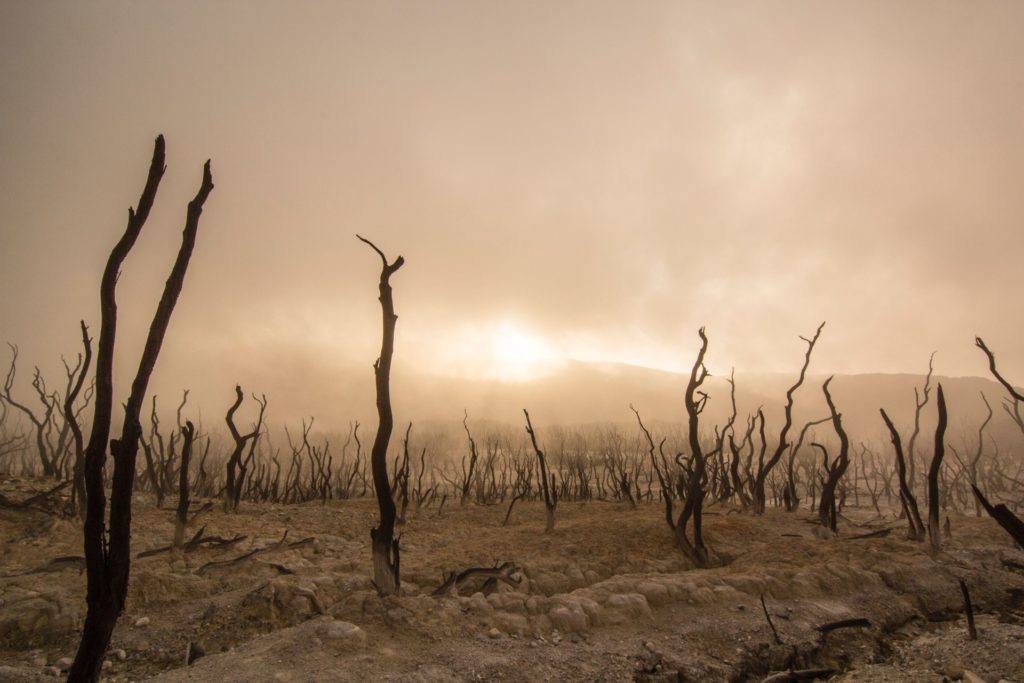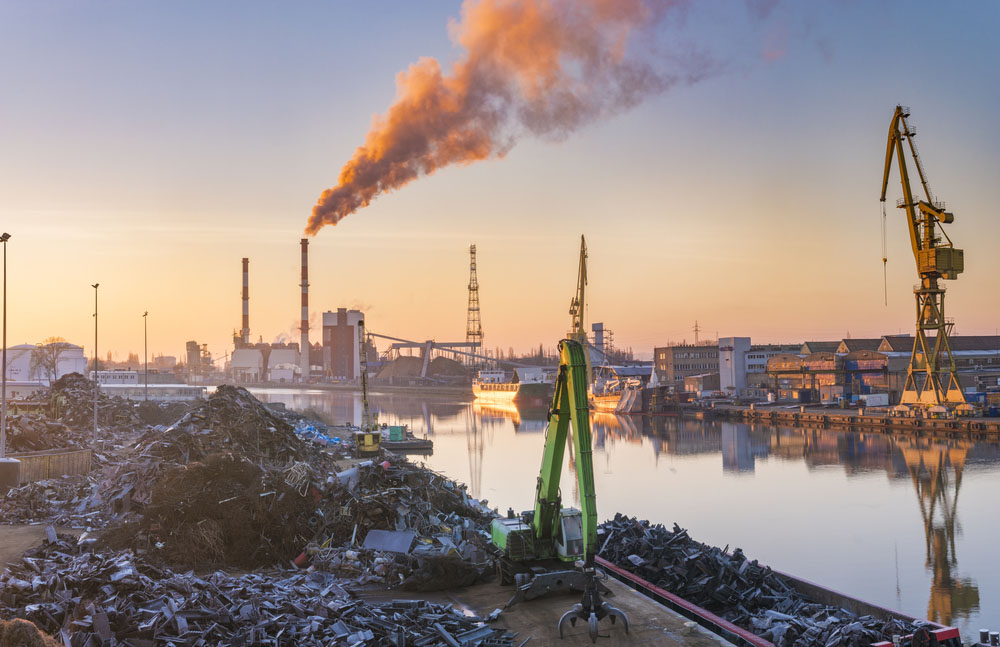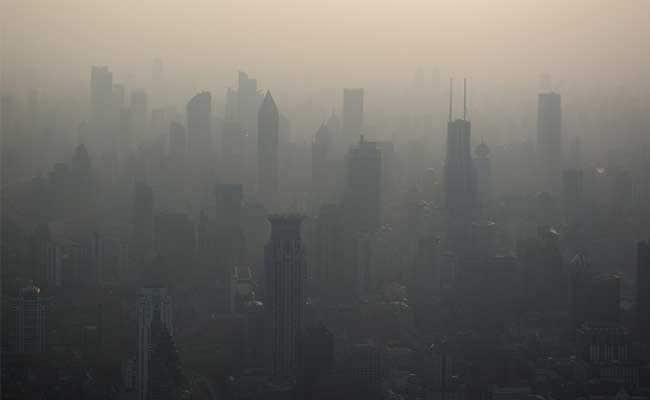

As a society, we are used to the idea that if the ordinary person in the street turns a blind eye to a problem, some “expert” – often referred to as “they”, will eventually find a solution and we can all move on. The recently declared global emergency over damage to the environment is not one of those problems: it is here to stay and growing in intensity each day that we fail to act.
The “we” is not a reference to other people or government bodies, it is not referring to action to be taken in another country or another decade: it means you and me, here and now, in this country.
It often takes a brave person to start to talk about “elephants in the room” because there are so many reasons not to do so: fear of upsetting the other person, being politically incorrect – or indeed fear of losing political support if you are a democratically-elected politician. The latter is going to be a real problem in many countries because the message that has to be sent out loud and clear is that we all have to stop consuming so much. And we have to stop now, today, this morning.
On the BBC Radio 4 Today programme, as well in other similar current affairs broadcasts, presenters have been asking experts what the recent UN report on the precarious state of the natural world means for each of us. The answers have been clear: if we do not start to act today, the Human Race is probably not going to survive as it does today, and within a matter of a few decades our lives will be terribly different – with the emphasis on the world “terribly”, as in awful. However, when pressed further to talk about changes we, as individuals, have to make, those same experts start to shy away from specifics, almost as if they cannot bear to be the person that “called time” on so much of what we take for granted today.
So here goes!
Stop flying around the world on holidays. Every plane that crosses the sky is spewing out highly destructive exhaust gases and vapours at high-altitude where they do the most damage to the ozone layer. So just stop flying so much and try to make amends when you have to do so by planting trees (or pay for someone to do so). And those of you who cannot contemplate life without going on half a dozen weekend breaks each year will have to be shamed into changing their attitudes – for their actions have the potential to be just as socially unacceptable as someone driving at 50 through a 30MPH limit is today.

Stop buying so many fashion objects. It is an appalling fact that many items of clothing are made and bought for one-time use only. A person who buys such cheap clothes on that basis is committing an act of environmental vandalism on a grand scale. Do not add to the millions of tons of perfectly good clothes that are thrown away in each year, many of which compound the overall problem given that they are made of artificial fibres that take decades to break down.
Cut your purchases of meaningless bling jewellery and cosmetics. Follow the advice of the courageous women who are championing the case for not being afraid of what you look like for real. Every stick of lipstick, or every plastic bangle – just be ready to say “No, I do not actually need that “.
Stop buying useless gadgets for the car or the home. Stick to the real necessities of life. Indeed, stop buying new cars full stop. Most of us do not need a new car each year – or even every three years. Modern vehicles are designed to last for a decade or more – so keep them on the road for as long as you sensibly can.
Drive more slowly. You will reduce fuel-consumption, produce less noxious exhausts gases, save on tyre wear, and reduce noise pollution. In fact, try not to drive as much in the first place. Go by public transport if you can, or plan in advance so that so you make fewer journeys.
Limit your use of data on mobile devices; don’t buy these large-screen smart phones with their ever increasing demands for electrical power; remember the days when a single charge lasted for a week of more? Stop taking millions of pointless photos and sending them to the cloud. You are adding to the demand for data-centres which store those images. Each data-centre needs about as much electricity as a large town (of about 70,000 people according to some estimates), and produces vast amounts of heat that have to be released to the atmosphere.

Eat less and stop wasting food. One third of what we buy in this country is wasted at present. Do not buy out of season foods that have to be flown around the world. Tomatoes, avocadoes, runner beans etc.: do not fool yourself that they grow in this country in the winter. So try to reduce your consumption of exotic fruits and veggies. Try to reduce your food consumption period! Too many of us are overweight in this country and try to blame external factors when we are just plain greedy.
Shun plastic wherever you can. Just say no to something that is over-wrapped in plastic. Stop buying three or four coffees a day in throw-away cups. Take your own cup – but much better would be to stop buying the coffee in the first place. Say no to the idea of picking up a “ready meal” wrapped in cardboard and plastic ready to go into the oven.
Stop eating as much meat as you do at the moment – unless you are a Vegan of course. Set aside the idea of going around to the local burger joint. Or if you go out to supper, order vegetables rather than meat or fish.
Do not leave your TV on all day, streaming films just because you have a monthly sub that allows you to do so. You are adding to the huge amounts of power being used to get that data to millions of individual households. Turn off lights when you are not in the room. Do not leave electrical components such as computers, hi-fi and TVs on standby: switch off your wi-fi router at night. Don’t boil a full kettle of water when you only want a single cup of tea.
Have smaller baths or shorter showers. Wash less often perhaps; you do not need to wash your hair every day, for example. When brushing your teeth, use a mug of water to rinse your mouth and don’t leave the tap running. If you have a hot-water bottle at night, re-use the water already in the bottle ; don’t just throw away the previous night’s water adding to the millions of gallons of treated water being wasted each day.
Think very carefully about your use of medicines, or indeed other chemicals such as the Pill etc. Do you really need them – or are you taking them just because they are there? Some cities have such high concentrations of pharmaceuticals getting into the local water table that the wildlife is being seriously affected; some even suggest that daily consumption of these chemicals via tap water has the potential to exceed the maximum daily intakes recommended by the makers of some medicines.
The list could go on forever, but we need to start to take action and see whether we can, as individuals, change our habits. We also need to tell the makers of plastic-products, or items that are wrapped in plastic, that we will not buy their goods unless they change their ways. We have to start actually telling shops why we are not buying their goods so that they get the right feedback – or they will not know what is going on.
We have to get rid of the notion that we are able to acquire clean energy from somewhere. The manufacture of the solar cells we are increasingly using consumes all sorts of polluting chemicals. Wind-power, for example, relies of rare-earth magnets to allow enough power to be generated at the hub of a turbine. But the methods of extracting that rare earth material involved spraying concentrated acids onto hills in China, with huge amounts of acidic waste being dumped into a massive lake, with acidic mists destroying farmland for miles around its shores.
We have to sit up and take notice. We are all in the front line and we risk absolutely everything by not taking action today, or even right now. Are you someone who heats their house to 21 degrees or more? Then go to the thermostat straight away and turn it down to a far more healthy 19 or even 16 degrees and just put on some warmer clothes. (As I am sitting here writing this, the thermometer in my office reads 14 degrees – so I have a couple of sweaters on and feel fine. I also really do get a small feeling of satisfaction that it is helping the world not to have a central-heating boiler blasting greenhouse exhaust-gases into the atmosphere.)

We must set aside any notion that our individual efforts will not make a difference in the big scheme of things. We are small compared with China or India; we are nothing compared with the whole of Africa. But if we are to be able to play our part in the overall crisis management that will be needed to save the world as we know it, then we have to be able to say that we are doing our bit.
We also need to accept that many traditional measures of “success” will have to change. We do not need, nor should want, for example, to have year-on-year growth in our economy as that implies ever increasing consumption of raw materials and more pollution. We have to accept that we will not go on getting “richer” with more disposable income. Those days should be regarded as something of the past.
However, we might come to accept that we will be immeasurably richer in other ways – one of which might be that we will be able to say to our children that we really did have a hand in saving the World.
Copyright: T Leger
Tom Leger served in the Forces in the 1980s. He is now a commentator on current affairs, writing for a number of journals. TMT intends to publish more of his work on this and related topics in the coming months.

Comments on The crisis that cannot be wished away